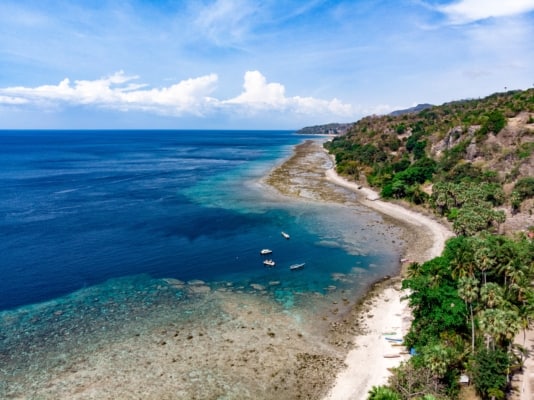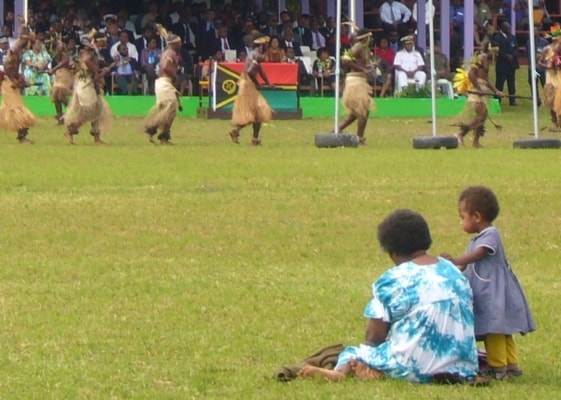Image: A meeting in India.
Guest post for openDemocracy.
The key challenge of development until 2040 is learning how to close the gap between ideals and actual progress.
#Tell everyone! After three years of open global negotiations and intense consultations, the United Nations general assembly has adopted a new set of sustainable development goals (SDGs). The good news is that these seventeen goals, which build on the better-known millennium development goals (MDGs) that expire at the end of 2015, are much more ambitious and comprehensive.
The eight MDGs were agreed following the United Nations’ millennium summit in 2000. They included halving extreme poverty rates and ensuring universal access to primary education. They also neglected issues of governance and inequality, which are at the core of the new SDGs. In particular, Goal 16 commits all signatory countries to “Promote peaceful and inclusive societies … provide access to justice for all and build effective, accountable and inclusive institutions at all levels”. Such different targets emphasise a variety of factors that are essential to eliminate extreme poverty and foster more resilient societies over the fifteen years to 2040: the end of violent conflict; the rule of law; equal access to justice; the reduction of corruption; participatory decision-making; access to information; and human rights.
There is an obvious retort to these fine ambitions. “This all sounds very well and good – but it doesn’t say anything about how to get there.” How to answer?
I have been researching closely the role of political settlements in achieving positive outcomes. A review of the literature for my most recent paper for the Developmental Leadership Program (DLP) suggests that, in the short term, more inclusive political settlements at the elite level are a crucial ingredient of sustainable peace and stability. Comprehensive agreements of this type have proven instrumental in preventing the recurrence of violence among competing factions, who commit to mediating conflict through shared (and peaceful) rules of the game.
But does inclusiveness need to go beyond elites? Where the long term at least is concerned, the answer is a resounding yes. An integral part of states and societies that can be considered peaceful, prosperous and resilient is having institutions that are, over time, effective, accountable and inclusive of the broader population – and not just of the elites. The literature establishes this conclusion quite convincingly; it is, for example, the key insight of Daron Acemoglu and James A Robinson’s sweeping historical analysis in their book Why Nations Fail.
The dimensions of change
So far, so convincing – but the problem lies in the yawning gap between these two findings. For the puzzle remains: how can a political settlement with a narrower focus on elite inclusion be transformed into a more broadly inclusive political order? The SDGs are silent on this.
History offers a hard but important lesson here: namely, that processes of transformation are complex and messy, and involve several dimensions of change:
- from violent conflict towards peace and the establishment of the monopoly of the state over the use of violence
- from political orders that are closed and exclusionary towards systems that are more open, representative, and inclusive
- from clientelism and a narrow concern for particularistic interests to substantive citizenship and a greater concern for the public good
- from patronage power/institutions towards greater impersonality of the political system and the rule of law
- from a stagnating or constricted economy, or one geared towards violence, towards investment, growth and jobs.
The biggest test
These dimensions are both iterative and interactive. When states and societies undergo change, simultaneous transitions (one or more) are likely in different arenas (for instance, political competition, the public sector, the market) and levels (national, subnational, or both), and at different paces and scales. The precise details will depend on the kinds of contestation and bargaining played out among groups that are either attempting to redefine the rules of the game and the nature of the underlying political settlement or, indeed, to preserve the status quo.
Crucially, “all good things” do not necessarily always come together. Governance transitions and the transformation of underlying political settlements are neither linear and one-directional or guaranteed to be positive. There is no prescribed trajectory of change or particular end-point. The very processes themselves often generate tensions, dilemmas, and trade-offs.
Post-genocide Rwanda offers a powerful illustration. It is a country that has made remarkable progress along some of the dimensions outlined above, while considerably less in others. State institutions, for instance, have become much more effective, especially in terms of their ability to generate economic growth, provide basic services, and maintain a monopoly of the use of violence. However, the political system remains far from open, providing little space or tolerance for the articulation of dissenting voices.
By contrast is a variety of countries across Africa, Asia, Latin America, and, most recently, the Middle East, where reforms to make institutions at least formally more inclusive (including new constitutions, elections, and anti-corruption and transparency policies) have often proved insufficient on their own to alter existing power relations along more inclusive lines. The fate of the “Arab spring” is a powerful reminder of this. Moreover, many of these countries have not managed to embark on a trajectory of growth that is more sustainable and equitable.
The relationships among the different dimensions of change in political settlements, and the leads and lags between, should not be treated as given or assumed. Their complex linkages and dynamics remain one of the most important questions to be examined empirically, by research and policy lesson-learning – even if the new SDG framework has wished them away.
Squaring the circle between normative ideals and how change actually happens is the fundamental challenge of development over the next fifteen years – and beyond.









